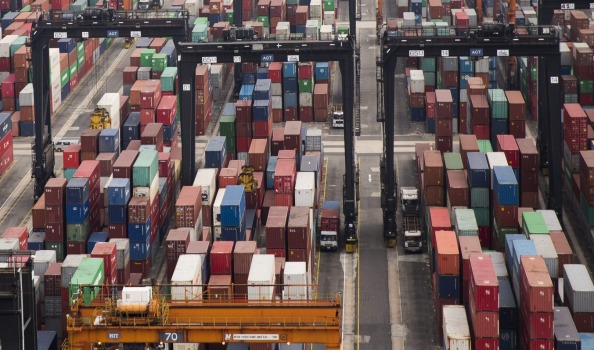Asian countries shift focus to regional trade after TPP delay

Asian countries have agreed to speed-up the conclusion of a more localised trade agreement after the delays finishing a competing US-led pact, in a bid to maintain regional economic integration just as a growth slowdown is hitting financial markets.
Economic ministers, including trade minister Andrew Robb, agreed that the Regional Comprehensive Economic Partnership (RCEP) should be substantively finished by the end of the year potentially shifting the focus of how Asian countries will try to harmonise the existing noodle bowl of trade deals.
Trade negotiators from the 16 RCEP countries are now due to meet again in South Korea in October to wrap-up the trade barrier cutting aspects of the agreement in time for potential endorsement by regional leaders at East Asian Summit in November.
Speaking after the meeting in Kuala Lumpur, Malaysian trade minister Mustapa Mohamed said: "The biggest issue we resolved today was agreement on modality in goods, meaning the level of tariff reduction. I consider this to be a major achievement."
Mr Robb said completing the RCEP would "set the region up for some enormous opportunities that will present in the years and decades ahead on account of an exploding middle class. Together with the TPP this would lay the groundwork for helping to realise the ambition of a free trade area across the Asia Pacific."
Some analysts see the RCEP, of which China is a key member, as a competitor with the US-led 12 member Trans-Pacific Partnership, which excludes China. A participant at the Malaysian RCEP meeting said there appeared to be productive cooperation between Asian rivals including China and Japan which underlined the drive to get one regional agreement finished.
The recent growth slowdown and associated stockmarket slump amid fears of a regional round of competitive currency devaluation may encourage some Asian economic officials to use the RCEP to reassure markets that the region is trying to step up its integration.
Australia has focussed more on the US-led TPP in recent months on the basis that it would set important new principles for 21st century commerce in areas including services and regulation but the government now appears to be less confident of any swift conclusion to the TPP.
A participant in the meeting said China appeared to be seizing the opportunity to bring the RCEP to a conclusion after it had been seen to be languishing. Mr Robb supported the Chinese objective of pushing for a conclusion.
The RCEP is more focussed on trying to harmonise the many existing bi-lateral and multi-country trade agreements in east Asia than establishing new commerce rules like the TPP which makes it more attractive to some Asian countries.
Mr Mustapa said some technical issues would still need to be resolved in 2016 and indicated that complications were being caused where major countries such as China, Japan and India did not have existing trade agreements.
Some Australian officials think that Australia’s discussions with India on a limited trade deal by the end of this year could play a significant role in resolving these complications within the RCEP.
Some Asian countries have been talking up the RCEP since the TPP impasse in Hawaii earlier in August with India’s commerce secretary Rita Teaotia saying it offered the best chance of India being inside a regional trade bloc.
Thai deputy commerce minister Apiradi Tantraporn said that while Thailand mighty want to join the TPP in the future, the RCEP was more important in the short term.
by: Greg Earl





